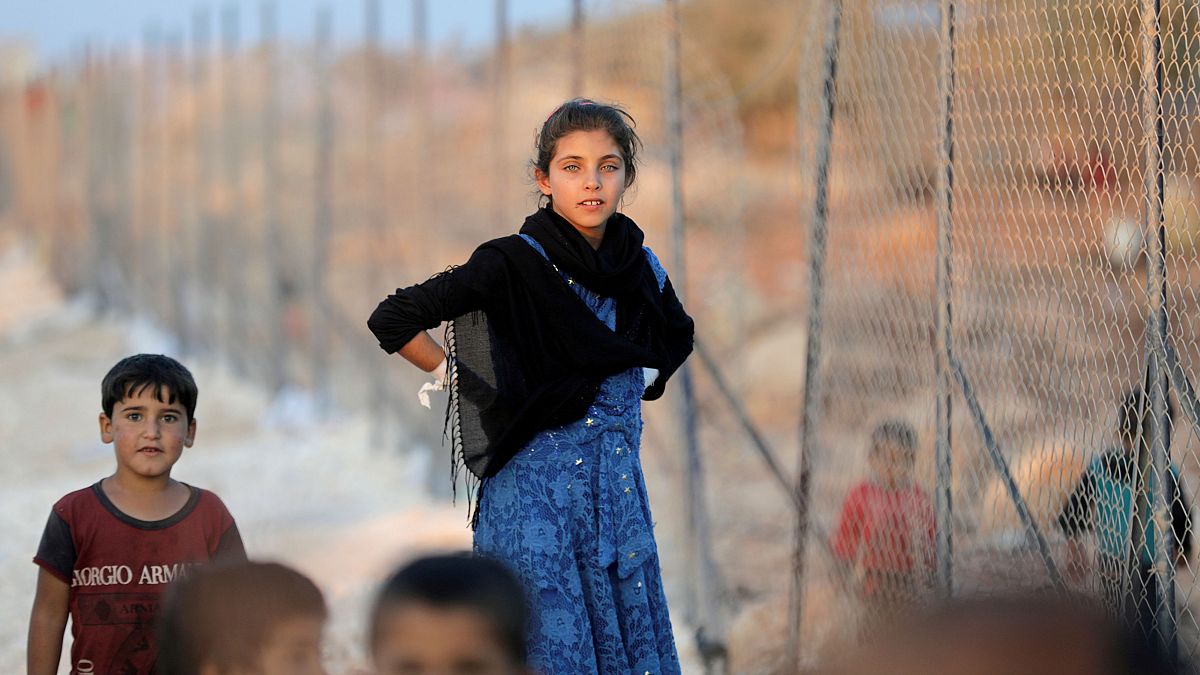Human Rights Watch says the Syrian government is using a controversial new property law to prevent displaced residents returning to their homes in former rebel-held areas.
The Syrian government is using a controversial new property law to prevent displaced residents from returning to their homes in former rebel-held areas, a human rights group says.
Human Rights Watch (HRW) says Syrians trying to reach Darayya outside Damascus or the neighbourhood of Qaboun inside the capital were unable to do so.
“Russia and Syria are calling on people to return to attract reconstruction funding, but as always with the Syrian government, reality is much different,” said Lama Fakih, HRW's deputy Middle East director. “Apparently under the guise of a notorious property rights law, the Syrian government is actually blocking residents from returning.”
According to the UN’s refugee agency, 6 million Syrians have been displaced within the country and there are nearly 5.5 million refugees outside Syria.
Lawyers, activists, and rights groups have expressed concern about the so-called Law 10, passed in April, under which the government can appropriate private property without due process or adequate compensation in redevelopment zones.
The Syrian government has dismissed concerns about the law as a “disinformation campaign”. It says it needs to rebuild areas destroyed in the war and regulate illegal settlements.
“This law comes within the framework of the Reconstruction Program, and has an organisational character aimed at regulating slum areas in Syria, especially in light of the destruction of many of the areas that were controlled by terrorists,” Syria’s mission to the United Nations in Geneva said earlier this year.
Law 10 originally gave property owners 30 days to prove ownership or lose their rights. The Syrian government extended the period to one year to allay fears refugees and the displaced could lose their homes.
But HRW spoke to seven Syrians who had attempted to return to their homes in Darayya and Qaboun, or whose immediate relatives attempted to return in May and July.
Residents said that they or their relatives were unable to access their properties.
In Darayya, they said, the government was imposing town-wide restrictions on access, and in Qaboun they said the government either had restricted access to their neighbourhoods or had demolished their property.
The Syrian government recaptured the towns after large-scale offensives that resulted in mass displacement of thousands of residents.
HRW says it believes the government is deliberately destroying homes in the guise of clearing tunnels created by anti-government groups, as well as explosives groups left behind in Qaboun.
HRW cited one resident as saying: “They took our children, our blood and now our property – what is left for us to return to?”
The group says preventing displaced residents from accessing and returning to their homes without an apparently valid security reason or providing alternatives to the displaced communities most likely amounts to forced displacement.
International law guarantees freedom of movement for people who are in a country lawfully, HRW says.
Humanitarian law also prohibits “wanton destruction” of property, and deliberate, indiscriminate, or disproportionate attacks against civilians and civilian objects, HRW says.
